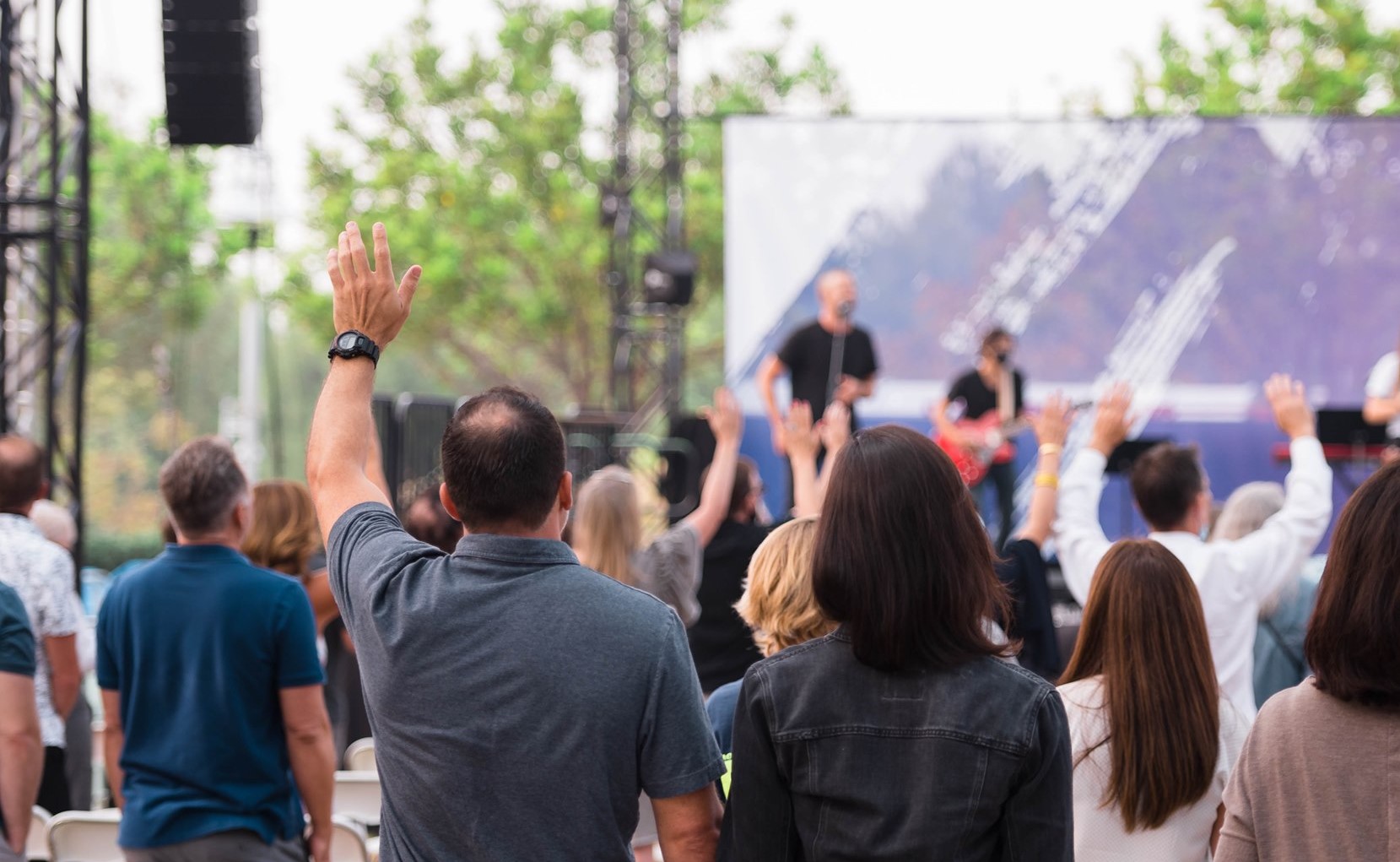The church I serve gathered again last weekend for large gatherings – outside with chairs set up in a physically distanced format. It has been a progression for us. In June we began gathering in homes. In July we launched smaller gatherings in neighborhoods throughout Orange County. In August we started using our largest campus for smaller gatherings. And last weekend we resumed our weekend services. The progression was too slow for some and too fast for others, but the church has been kind and gracious in the midst of differing viewpoints. My heart is so full after the gatherings: seeing people receive prayer from others, hearing people sing to our God, watching people use their gifts to serve each other, sensing the response to the Word being taught. Here are five initial reflections from this latest iteration in our gatherings.
1. The implications of isolation and not gathering are real.
The virus is real, but so are the implications of isolation. You can have a healthy respect for the seriousness of the virus and still believe that people should gather because there are other data points too. Mental health is deteriorating. Marriages are struggling. Substance abuse is increasing. Loneliness is escalating. Those data points must compel us help people be in community – whatever forms of community a church believes they should offer in this season.
2. God uses the gathering of His people to keep His people.
I had several conversations with people this weekend who confessed that they sensed their hearts drift over these last few months. While they were “fully in” watching services online initially, they sensed their hearts began to drift. They stopped looking forward to Sunday mornings. Church became less important. Time with the Lord began to wane. Not gathering with others was taking a toll. Which we know to be true because the Scripture teaches that the Lord uses encouragement from others to keep our hearts from hardening (Hebrews 3:13). Many said, “I did not know how much I missed this, how much I needed this.”
3. Corporate worship is always supernatural, not always spectacular.
With worship services outside and smaller gatherings throughout Orange County, some would say our worship services are not as spectacular as they were. Not as many lights and other elements being artistically utilized. Not as many people jammed into the same room. But this weekend was supernatural. People were refreshed. The Lord did a gracious work in our hearts. He met with us. Authentic corporate worship may not be spectacular, but it is always supernatural.
4. Technology is a great tool but an incomplete replacement.
I am so thankful that we had the technological tools of 2020 when CoVid19 began. Jesus has used and is using technology to expand the ministry of many churches and introduce Himself to many people. We are wise to use technology to advance the message of Jesus, but we are also wise to recognize the limits of technology. It is a medium that limits the depth of a conversation, the interaction of a group, and the beauty of people worshiping alongside one another.
5. We must be careful not to idolize how we gather.
The form of our gatherings must not take center stage; the focus of our gatherings must. And Jesus is the only worthy focus. Whether inside, outside, in smaller gatherings, or larger ones, our identity must not be in how we gather but in the One whose name we are gathered.
The language around gatherings is exhausting and divisive. I am sure you have heard it:
“We gather with masks, and if you don’t then you don’t love others.”
“We gather without masks and if you wear one then you are letting fear rule you.”
“We gather inside because we value religious liberty.”
“We gather outside because we submit to our leaders.”
“We gather in small groups because we are like the early church.”
“We gather online because we know the times and care for the vulnerable.”
“We gather in large groups because our faith is bigger than
May the Lord rescue us from the pride that compels us to compare how we gather with how others gather. May He rescue us from the insecurity and hubris that causes us to shame others for taking a different approach. If how we gather becomes our identity then we will look down on others who take a different approach. If Jesus is our identity then we will enjoy Him as we gather. We will gather before Him in awe that He has justified us, and we won’t use our gatherings as a way to attempt to justify ourselves or distinguish ourselves from others.





